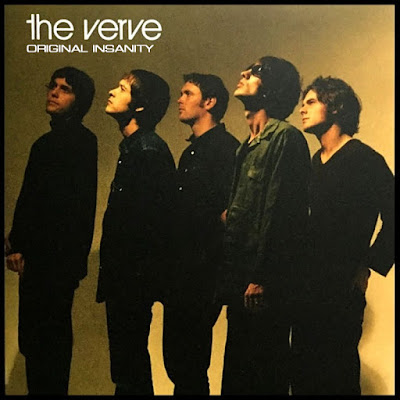In 1994, The Verve released the album 'No Come Down' on Hut Records, a compilation of b-sides plus a live version of 'Gravity Grave' performed at Glastonbury Festival in 1993. It was the band's first release under the name "The Verve", following legal difficulties with jazz label Verve Records, which forced the band to change their name following a US court case. The band then played on the travelling US alternative rock festival, Lollapalooza, in the summer of 1994, and the tour became notorious for the events of 11 July – Richard Ashcroft was hospitalised for dehydration after a massive session of drinking, and Peter Salisbury was arrested for destroying a hotel room in Kansas in a drug-fueled delirium. The Verve's physical and mental turmoil continued into the chaotic recording sessions of their second album, 1995's 'A Northern Soul', produced by Owen Morris. The band departed from the experimental psychedelic sounds of 'A Storm In Heaven' and focused more on conventional alternative rock, with Ashcroft's vocals taking a more prominent role in the songs. Around this period, Oasis guitarist and friend of Ashcroft, Noel Gallagher, dedicated the song 'Cast No Shadow' to Ashcroft, who returned the gesture by dedicating the song 'A Northern Soul' to Gallagher. The band released the album's first single 'This Is Music' in May, and it reached No. 35, becomoing their first single to reach the Top 40. It was followed by 'On Your Own' in June which performed even better, reaching No. 28. The album reached the UK Top 20 upon its release in July, but Ashcroft broke up the band three months later, just before the release of the third single 'History', a prophetic title in hindsight. Ashcroft reunited with Simon Jones and Peter Salisbury just a few weeks after the break-up, but Nick McCabe did not rejoin them, and the new band hired former Suede guitarist Bernard Butler, although he spent only a couple of days with the band, and Simon Tong, a school friend credited with originally teaching Ashcroft and Jones to play guitar, became their permanent guitarist. The three singles from 'A Northern Soul' all had exclusive b-sides, and the band also recorded a number of songs which didn't make the final cut for the album, so this collection of b-sides and out-takes rounds them all up into a companion album to the one which is generally credited as bringing the band the mainstream commercial success that they'd been craving for so long.
B-sides
01 Let The Damage Begin (b-side of 'This Is Music' 1995)
02 You And Me (b-side of 'This Is Music' 1995)
03 I See The Door (b-side of 'On Your Own' 1995)
04 Little Gem (b-side of 'On Your Own' 1995)
05 Dance On Your Bones (b-side of 'On Your Own' 1995)
06 Back On My Feet Again (b-side of 'History' 1995)
07 Monkey Magic (Brainstorm mix) (b-side of 'History' 1995)
08 Grey Skies (b-side of 'History' 1995)
09 Life's Not A Rehearsal (b-side of 'History' 1995)
01 Let The Damage Begin (b-side of 'This Is Music' 1995)
02 You And Me (b-side of 'This Is Music' 1995)
03 I See The Door (b-side of 'On Your Own' 1995)
04 Little Gem (b-side of 'On Your Own' 1995)
05 Dance On Your Bones (b-side of 'On Your Own' 1995)
06 Back On My Feet Again (b-side of 'History' 1995)
07 Monkey Magic (Brainstorm mix) (b-side of 'History' 1995)
08 Grey Skies (b-side of 'History' 1995)
09 Life's Not A Rehearsal (b-side of 'History' 1995)
Out-takes
10 Brake Lights (out-take 1995)
11 Mover (out-take 1995)
12 Funky Jam (AKA The Rolling People) (out-take 1995)
13 Echo Bass (out-take 1995)
14 Muhammad Ali (out-take 1995)
15 Come On (out-take 1995)
16 King Riff (AKA This Is Music) (out-take 1995)
10 Brake Lights (out-take 1995)
11 Mover (out-take 1995)
12 Funky Jam (AKA The Rolling People) (out-take 1995)
13 Echo Bass (out-take 1995)
14 Muhammad Ali (out-take 1995)
15 Come On (out-take 1995)
16 King Riff (AKA This Is Music) (out-take 1995)



